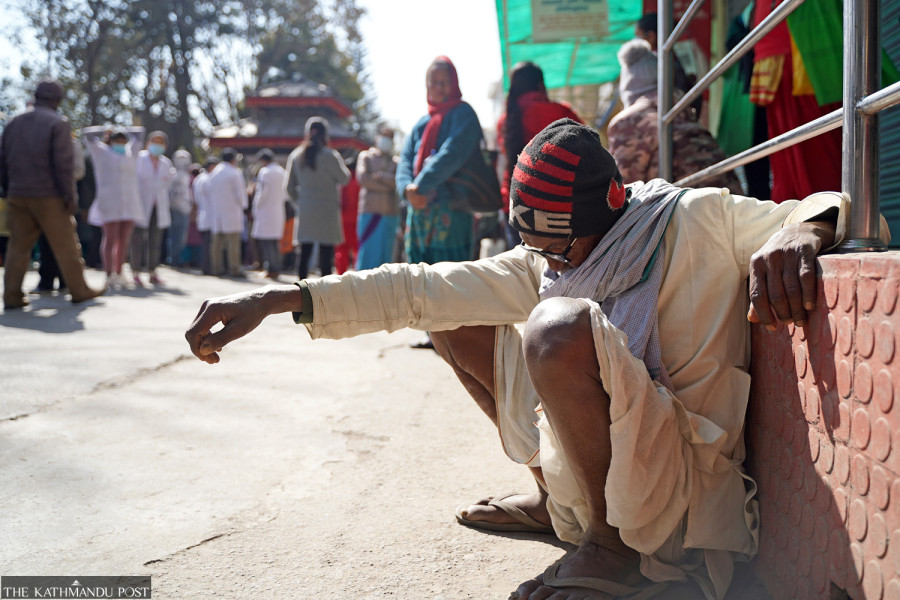Editorial
Essential flaw
Those who joined the essential services knew full well what they could and could not do.
Given the drastic measures employed to remove everybody and everything from the roads so that the President's motorcade will have the smoothest passage possible, it was only a matter of time before they resulted in a grave incident—like the one that happened on Friday. On that day, the police baton-charged a medical doctor in front of Bir Hospital in Kathmandu in the process of clearing the road for President Bidya Devi Bhandari's VVIP procession. In response, the Nepal Medical Association on Sunday shut down all medical services except emergency care. Similarly, several transport-related organisations on Tuesday halted public buses, protesting against what they said were unlawful traffic fines, unjustified suspension of driving licences and high fees for pollution tests. (Both services have now resumed following talks between the government and the service providers.)
In a democracy, every citizen has the right to protest, especially when they feel injustice has been done. It is also not hard to understand the grievances of medical professionals and public vehicle operators. There are frequent reports of patients assaulting doctors and of the precarious existence of bus drivers. Like many other Nepalis, perhaps they too feel they will not be heard unless they resort to drastic measures. Perhaps our politicians don't realise it, but the power-centric petty politicking also sends a message of dysfunction and hopelessness. Yet, even when hope is in short supply, each of us must also keep fulfilling our social obligations, or a civilised society will stop functioning. Those who are in the essential services should be especially mindful of this.
The state has explicitly banned any disruption in essential services like health and transport as such stoppages directly affect people's daily lives. Following the disruption in medical services on Tuesday, thousands of patients seeking medical care in government-run hospitals either missed their appointments or faced difficulties in meeting their doctors. As the healthcare system is still centralised in Kathmandu Valley, people from far-flung places descend on the valley for treatment. Many of them have to put up in expensive lodges and hotels, sometimes for months on end. The medical strike directly affected these people. Worryingly, the transport strike not only made it difficult for people from all walks of life to commute, but also resulted in incidents of arson and looting.
The strikers may have legitimate concerns, but those who joined these fields did so with full knowledge of what they could and could not do. It was a sort of a social contract. Who will take responsibility if a patient dies from delayed medical care? And who will pay for all the damage that resulted from the violent protests of transport workers? But it's a two-way street. There appears to be lack of trust all around. If that continues to be the case, more such disruptions are inevitable. This is why the government must maintain constant communication with the providers of essential services so that their grievances are addressed on time. The focus must be on finding reasonable rather than foul-proof solutions.




 9.7°C Kathmandu
9.7°C Kathmandu














